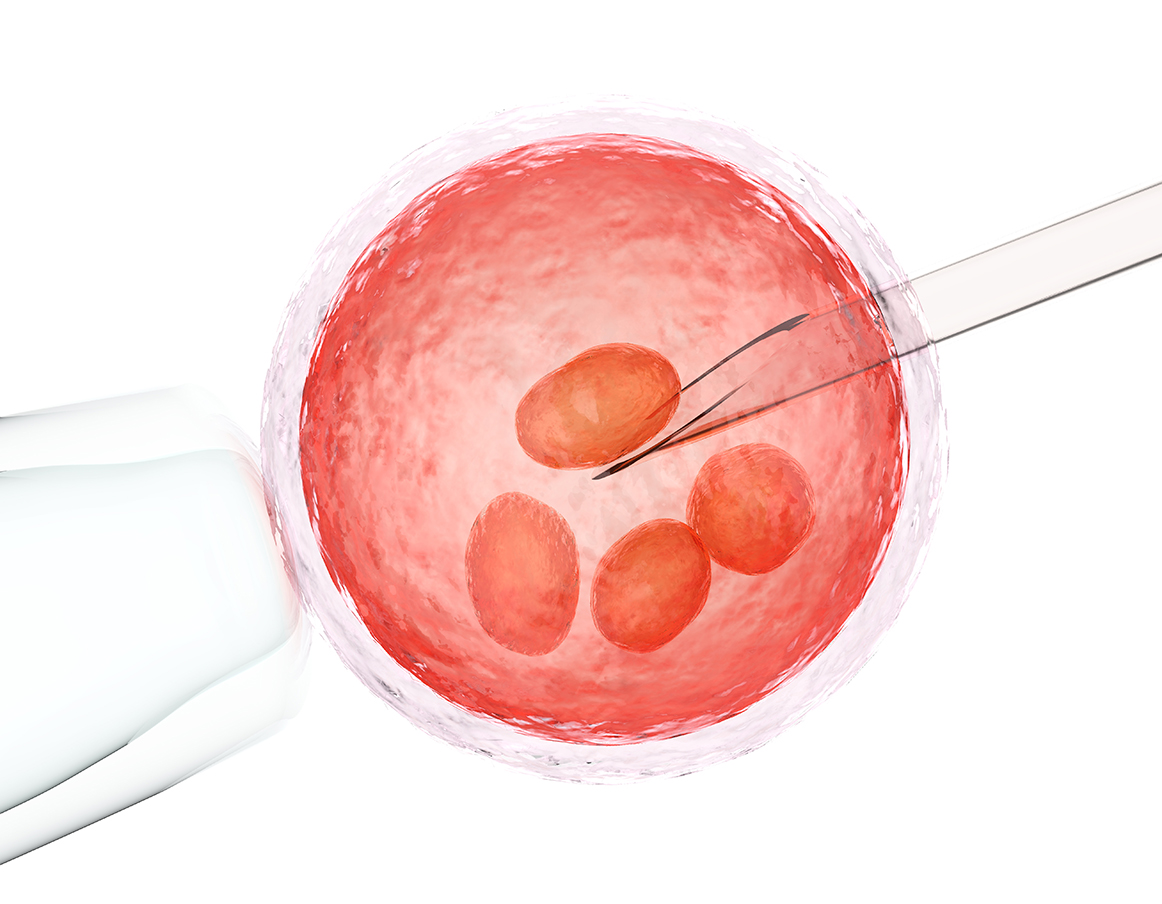Services
Blog

PGD | Preimplantation Genetic Diagnosis
We recommend PGD for the following reasons:
- For patients who want to know the gender of their baby, even before implantation
- For patients who have had more than one miscarriage
- For patients that risk passing on chromosomal abnormalities or monogenic disorders, such as sickle cell disease
- For patients whose IVF treatment has failed several times
- For patients suffering abnormalities in the spermatozoa
- For patients with age-related issues
Stages of PGD Treatment
Stage 1 – First Contact with Experienced Patient Coordinator
We will receive your message through a phone call, viber or whatsapp, or via direct email, letting us know you are interested in our services. A patient coordinator will reply to give you a comprehensive overview of what to expect. We will discuss what tests are needed to start the process and get a history of any previous treatments. During these conversations we will strive to understand your personal situation and give you the time to ask about the treatments and let us know of any personal issues you may have. Last but not least, we understand that undertaking an IVF cycle abroad can be daunting and we will spend as much time as you need to feel comfortable and happy with your choice.
Stage 2 –Blood Tests Before We Start
Before we are able to plan your treatment cycle, there are a number of tests you need to
undergo (see below). These tests determine your fertility and your ovarian reserve. These
tests are important as we plan your medication protocol based on the results. You may well
have had these tests previously, but we need the results to be dated between 1 and 6 months
before you plan to start the procedure. All blood tests need to be completed on day 2 or 3 of
your menstrual period.
The hormonal tests that are needed:
• FSH (follicle stimulating hormone)
• LH (luteinising hormone)
• AMH (anti-mullerian hormone)
• TSH (thyroid stimulating hormone)
• E2
• Prolactin
• Ft4
Additional tests FOR WOMAN:
• HbsAg
• AntiHbs
• Hcv
• Hiv
• Rubella IgG-IgM
• VDRL – test for Syphilis infection
• Toxoplazma IgG-IgM
• Cmv IgM
• Blood Group
• CBC
Tests for Man:
• HbsAg
• AntiHbs
• Hiv
• Hcv
• Vdrl
• Blood Group
• Spermiograma
You will also need to have a trans-vaginal ultrasound scan so an antral follicle count can be performed. The blood tests you can do them before you come or you can do them in the hospital, but the hormonal tests must be performed before traveling for treatment.
The whole procedure takes around 3 weeks and you must travel from day 1 of the treatment.
If you start the procedure in your home country, you can only travel for 10 days.
Stage 3 – The beginning of the procedure
At this stage, you will be sure of which treatment you will be doing and we will be planning for your arrival. As soon as the required tests (above) are completed and you have an idea of
which month you are starting your IVF treatment, we will advise you to start on a monthly contraceptive pill. This will regulate your monthly menstrual period.
An individual protocol will be prepared. This will provide you with instructions on how to
take the medications, and when. The protocol is in an easy to read calendar format. Please do
not forget to get in touch with your coordinator if you need help or assistance regarding the
prescription.
Medications to Use if you start in your home country:
You will start daily injections from day 2 until day 11 (depending from person to person) of
your menstrual period. The medication is made up of hormones, LH (luteinising hormone)
and, FSH (follicle-stimulating hormone). This will stimulate your ovaries to produce follicles.
The second medication is an injection, from day 6 to day 11 (this also depends from person to
person on when to start the medication) of your treatment cycle, at which point your follicles
will be around 12-14 mm in size. This will be started after follicle stimulation to prevent
untimely ovulation by blocking the hormone (Medication-releasing hormone-GnRH) that
causes eggs to be released from the ovaries.
Stage 4 – Arriving to Cyprus
If you decide to come to Cyprus for the whole treatment period, you will arrive on day one of
your menstrual period. Otherwise, you should arrive on day 10 of your cycle, which means 9
days after your menstrual period has started. Your coordinator will contact you to set up an
appointment for the following day.
Doctor will measure your follicles and inform you if there is a need for further stimulation or
whether you are ready for the hCG trigger injection that completes the maturing process.
Ideally, your follicles should be around 18 mm-20 mm. If there is a need to stimulate the
follicles further, we will wait one more day before administering the hCG injection; if the
follicles are big enough you will take the trigger injection around midnight that night.
Stage 5 – Oocyte Retrieval (Egg Collection)
The egg retrieval will be scheduled when the follicles have reached an appropriate size, approximately 36 hours after the hCG-injection.
Egg Collection is done under light sedation so that you will be comfortable. The procedure
will take 15 minutes. Please note that you’re not allowed to eat or drink 6 to 8 hours before
egg collection day because of the sedation you will be given. The egg collection will take
place using an ultrasound guided follicle puncture and your eggs will be immediately
transferred to the laboratory. As the doctor starts the egg collection process, your partner will
be asked to provide a sperm sample. To obtain the highest quality of sperm, we recommend
you do not have sexual intercourse for at least 2 days prior to egg collection.
Stage 6 – Embryo Culture in our Lab
The embryologist will verify if fertilisation has occurred. This means that we will monitor (after 24 hours) the pronuclear stage; a pronuclear is the nucleus of an egg cell/a sperm cell that must combine during the process of fertilisation. Each one contains half the number of chromosomes of the male and female. During the next few days, the embryos remain incubated to develop. As recommended by the Embryologist it is necessary to leave the embryos undisturbed and not remove them from the incubators to keep the environment consistent.
Stage 7 – PGD Genetic Analysis
According to the laboratory rates, 90% of the pronuclear embryos will develop and will be comprised of 8 cells on the third day. Embryo biopsies are done on day 3 and examined in the lab for genetic diagnosis. The analysis takes 2 days. The results are shared with you on the day of embryo transfer before the procedure takes place.
Stage 8 – Embryo Transfer
You will make the final decision on how many of the embryos you would like to be
transferred. Our recommendation is to transfer three embryos as this will give the best chance
of a pregnancy from one IVF cycle.
There is no need for sedation during this procedure and you are allowed to eat and drink. It is
necessary to have a comfortably full bladder, so you will need to drink water beforehand.
Using a vaginal speculum, the doctor will expose your cervix and sterilise the vagina and the
cervix. With the help of specialist equipment, your embryos will be transferred into the uterus
under ultrasound guidance. After the transfer, you will need to lie down flat for at least 2
hours. It is recommended to rest as much as you can.
Stage 9 – Testing for Pregnancy
You will need to arrange a hCG-blood test, 12 days after transfer, to find out if your IVF has
been successful.
There are some countries who do not provide a blood test. If this applies to you, you will
need to wait 2 more days and on day 14 perform a urine pregnancy test.
To get an accurate
result please use your first morning urine. If it is negative, please continue using the post
transfer medications and repeat the test after 2 days.
If the outcome of the urine test is positive, you need to continue the prescribed medications.
If the hCG blood test outcome is negative, you need to stop taking medications immediately and once the hormones leave your body, you will experience a bleed about 2 weeks later.
Please update us, either way, by contacting your coordinator who will provide you with
support and give you the right advice.



